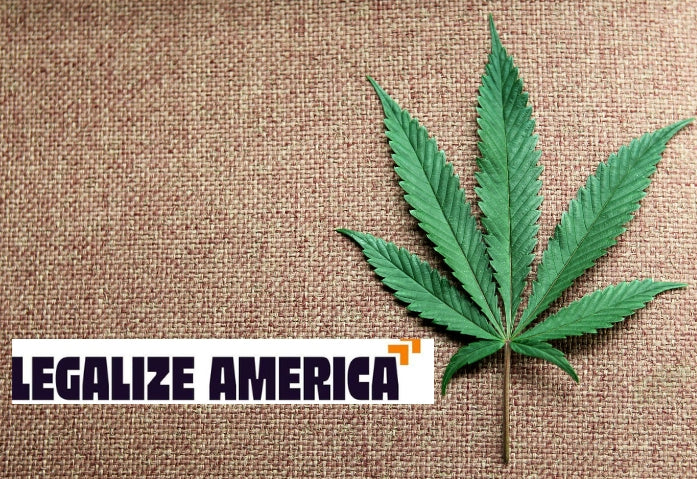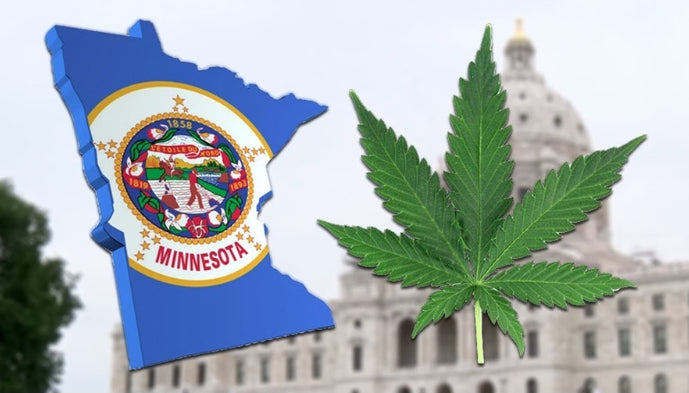The state's top attorney contends that the initiative's language intentionally misleads voters and should be stricken from consideration on next year's ballot.

The battle over whether or not to legalize adult-use marijuana in the Sunshine State of Florida is heating up as summertime officially begins. According to numerous local and national media outlets, Florida's Attorney General, Ashley Moody (R), submitted a brief this week outlining her reasoning for excluding a cannabis legalization initiative from the 2024 ballot.
In addition, the Florida Chamber of Commerce and an anti-drug organization have joined the fight by filing their own legal briefs opposing the voter signature-driven measure, funded almost entirely by Trulieve, one of the largest multi-state marijuana operators in America.
Moody filed her initial brief by the Monday deadline set by Florida's Supreme Court after being given a two-week extension by the state's top judicial body. The crux of her argument to invalidate the cannabis reform initiative is wholly predicated on how the ballot summary is written, which she contends is affirmatively misleading to voters on several grounds.
According to the Attorney General's brief, the legalization measure should be excluded from the ballot for the following reasons.
1. The initiative fails to adequately inform voters that even if they approve the measure, marijuana will remain illegal under federal law.
As she states in her brief, previous court rulings on earlier legalization ballot proposals "overlooked that voters need clear guidance before being asked to lift state-law penalties for the possession of a substance that would subject users to devastating criminal liability under federal law."
2. The proposal suggests that the number of retail outlets available to consumers would increase if passed when in truth, it only maintains the state legislature's ability to expand retail operations, with no guarantee that lawmakers would have the desire to do so.
The brief explains, "Floridians would likely care about this issue because greater competition in the marijuana marketplace would decrease retail prices and increase the quality and professionalism of marijuana producers and retailers. But currently, only [Medical Marijuana Treatment Centers] are licensed to engage in the marijuana trade in Florida, and the proposed amendment would not change that."
"Floridians would likely care about this issue because greater competition in the marijuana marketplace would decrease retail prices and increase the quality and professionalism of marijuana producers and retailers. But currently, only [Medical Marijuana Treatment Centers] are licensed to engage in the marijuana trade in Florida, and the proposed amendment would not change that."
- Legal Brief Filed by Florida Attorney General Ashley Moody
3. The ballot summary is also misleading because it leaves "reasonable voters" with the impression that the measure "limits the scope of the immunity" to possess up to three ounces of cannabis.
What the proposal actually does, according to Moody, is enforce specific penalties for those individuals possessing more than the allowable amount. Furthermore, it severely restricts the legislature's ability to increase the limit, and the language would effectively ban "most or all cannabis cultivation" in the state.
The brief says, "By limiting an individual's personal possession of marijuana to 3 ounces, the amendment aids corporate interests like Trulieve in entrenching their monopoly of the marijuana market. A ban on possessing more than 3 ounces will make it difficult, if not impossible, for individuals to cultivate marijuana for their own consumption and for the consumption of friends and family, forcing those users into the retail marketplace."
4. Perhaps most importantly, the ballot initiative fails to mention that the Florida Department of Health will lack the same constitutional authority to effectively regulate the proposed recreational marijuana market that it currently enjoys with the medical cannabis industry.
Moody states, "It fails to disclose that there would be a substantial period when [medical cannabis dispensaries] engage in the unregulated trade of recreational marijuana."
"It fails to disclose that there would be a substantial period when [medical cannabis dispensaries] engage in the unregulated trade of recreational marijuana."
- Legal Brief Filed by Florida Attorney General Ashley Moody
Florida law concerning the inclusion of petition-driven voter initiatives on the ballot is clear and specific. The language must be clear and cannot mislead voters. Moody and her office are confident their arguments demonstrate that the wording is, at best, unclear and, at worst, intentionally misleading.
She concludes by saying, "In short, the Adult Personal Use of Marijuana amendment asks voters to make consequential changes to Florida's Constitution yet is not honest with them about what those changes would be. The initiative should be stricken."
This legal showdown is not the first time she has challenged a proposed legalization measure. She argued almost identically against a 2022 legalization measure, which the Supreme Court subsequently invalidated. Now that she has filed the first briefing, reply briefs must be submitted by July 19 and 26 according to the new extended timeline.
Undeterred by the attorney general's actions, activists and supporters of the Smart & Safe Florida campaign say they have thoroughly vetted the proposal and are supremely confident the court will validate their argument that it complies with all constitutional requirements.
If the court sides with the campaign and the initiative makes the 2024 ballot, it would still need at least 60 percent of Florida voters to approve the measure for it to pass. Current polling indicates that it would most likely receive the required votes to become law.
However, the Supreme Court has notoriously opposed two previous attempts to circumvent the legislature on issues pertaining to cannabis legalization in recent years. Those in favor of legalization hope this third time is the charm. One thing is for sure. It should be an interesting couple of months for Florida weed watchers. Stay tuned for any and all updates.




























